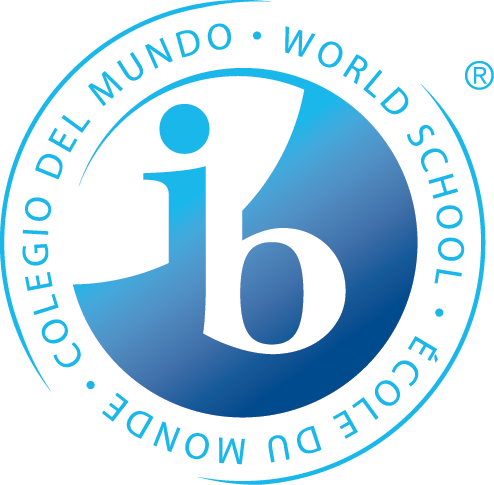Rand International School is committed to supporting multilingualism as essential to increase intercultural understanding and international-mindedness.
Language Policy CommitteeLanguage committee will consist of PYP coordinator, language teachers, administrators, first subject teachers, and student committee and parents committee members.
The Language Policy Committee is responsible for:
- Overseeing the procedures needed to develop the language philosophy and policy of the school
- Gathering, presenting and collating the views of school community. This data may be gathered in a variety of ways including informal discussions, questionnaires, observations, and interviews with students and other members of the school community.
- maintaining this policy, monitoring its implementation and considering recommendations
- Providing authentic contexts for language teaching and learning in all areas of the curriculum that are a reflection of, and relevant to the community of learners, and to the educational theories underpinning the programme.
- Identifying the language of communication used in the school and outside the classroom.
- Approving changes to the level of support providing.
- Ensuring that all documents submitted by the school in support of its application/programme evaluation are written or translated in a working language for the programme.
- Supporting teachers in becoming more proficient in one of the school working languages for the programme.
- Ensuring that all services and materials needed for the delivery and implementation are offered in English and translated to Arabic
- Ensuring the development of the program, the enrichment of learners' mother tongue, the second language been taught and the professional development.
- Will ensure that the school library and media resources are rich and available in two working languages.
- The language policy committee meets as required (but no less than twice each year) to review language policy issues and make recommendations to the IB’s senior leadership team. A report from the committee is given to the governing body annually.
Language policy defines three groups of languages e, as well as the documents and services that will be provided for each in the relevant language.
Working languages: The languages in which the organization communicates with its stakeholders and in which it is committed to providing all services needed for the implementation of the programmes. The working languages at Rand international schools are English and Arabic. The following is provided in both languages
- public web site
- All advertising material
- Official communication and documentation.
Access languages: Languages that school has identified as being of strategic importance to meet its access goals and objectives to develop a more inclusive and diverse in the community. The school provides services (training, mentoring, guiding, assessing) and all documentation in English and Arabic languages, to support teachers
Internal working language: English and Arabic are the school's internal working language, in which most operational and developmental activities take place. It is also the language of its governance, management and academic committees.
Language of instruction: The language in which our School delivers its programmes and courses to its student population are both English and Arabic languages. Majority of instruction language of the delivery is by English languages and minority is in Arabic language
- Organization of language support inside and outside the classroom:
Throughout the primary years, the class teacher provides the main bulk of language support to students. In all grades, the class teacher manages all of the children’s language development and assesses each child‘s needs. Tasks are differentiated by the teacher according to the specific needs of each child.
Library skill lessons are given by the school Librarian to encourage a reading culture among the children and a greater awareness of how to use a library appropriately and efficiently.
Outside the classroom, children are encouraged to use language positively, especially when addressing each other. They are encouraged to exhibit the Learner Profile and attitudes through their use of language for social purposes.
- Language and the programme of Inquiry:
As far as possible, language should be taught within a unit of inquiry.
Teachers across age ranges identify elements of their language scope and sequence documents which can be taught through their units of inquiry. Teachers need to ensure that the different language strands are covered through the units and that the students are aware of which language skills they are using/ practicing.
- Identifying the language needs of each student:
At the start of the academic school year, a general assessment is carried out to determine the language proficiency of the language of instruction (English/ Arabic). Recommendations are then made by teachers for intervention(English and Arabic enhancement program)
- Differentiation in Language learning:
Differentiation should occur across language strands. A teacher may decide to differentiate by creating groups of similar abilities for some activities, such as reading. In written work, students can be supported by the use of writing frames which provide varying degrees of support. Some ways of differentiating language learning are through students’ interest, through outcome, through task or through mode of expression.
- Parental involvement with language development:
Parents are encouraged to listen daily to their child reading and to record this in their child’s reading record log book. This area needs to be built on, perhaps at a parents’ conference, by giving parents different strategies for promoting their child’s language learning in ‘Fun’ ways.
- Professional development in language teaching:
Staff meetings are devoted to professional development. In these meetings, there have been ‘model’ language lessons and the staff is encouraged to exchange ideas and good teaching practices.
- Identifying resources:
The scope and sequence Language documents are the programme of inquiry are reviewed regularly and appropriate resources are selected from a variety of local and international suppliers. This is done once a year. Class teachers may make suggestions throughout the year, but the bulk of the ordering is done once a year.
- Librarian role in language development:
- The librarian support the development of multilingualism through access languages or languages of instruction for all students, especially as this may be a challenging aspect to resources across the programmes
- Provide balanced collections in two languages in schools that operate a bilingual policy for teaching and learning; this may include dual-language texts In such cases, an understanding of bilingualism and the relevant pedagogy can be promoted through various texts being provided in specialized library collections for educators as well as parents.
- Librarians see their collections as providing a range of texts and information to support learners of very different abilities, thus contributing to extending the language development of individual students. Librarians are also passionate about the concept of reading for pleasure as a lifelong activity and generally devote time and energy to means of promoting imaginative literature in their schools. They see this as an important contribution to motivation for reading and thus to literacy development. A particular interest of school librarians is information literacy, which is an aspect of the inquiry process. It is important that there is a focus on this literacy as well as others such as critical literacy as part of multiliteracy development and that this is reflected in the wider literacy vision.
- Proficiency levels in Language:
Three main categories of students have been identified:
- Those who speak Arabic at home and for whom English is truly a second language.
- Those who speak mostly English at home but with parents whose mother language is not English.
- Those with English as a mother language.
Expectations of each child in terms of proficiency will differ according to the category into which he falls.
- Assessing Language:
Teachers are expected to use the range of tools and strategies as outlined in the PYP Assessment Handbook and in the school general “Assessment Policy”. Assessment of language is multifaceted and involves learning language, learning about language and learning through language.
Learning Language:
Students will show understanding through their active participation in classroom engagements in different ways. They will be able to interact during class discussions, argue about issues, compare ideas and make connections. Students will provide feedback while selecting their work for the portfolio. They will show the ability to use the language in speaking and writing with ease. The library's increasing resources will support students in learning language in their mother language as well as in English. Teachers will use multiple tools for assessing and recording students' learning of language like the Venn diagram, checklist, rubric, graph and writing. Such tools will show students language development.
Learning about Language:
Learning about language will be assessed based on students' responses about the concepts and subjects they are learning. Students will give oral presentations, raise questions, write and speak about different topics of inquiry. They will be able to use the reading and writing skills they learn gradually with increased improvement.
Teachers will be assessing students' improved usage of language in speaking and listening, reading and writing, viewing and presenting. During this assessment, teachers will use different assessment tools such as rubrics, checklists, exemplars, anecdotal records and continuums to assess students' portfolios and written/oral reflection.
Learning through Language:
Students' lives and experiences drive their learning through language. When students learn about the world in every content area (Such as Science, Social Studies, Math, Literature, etc), they will learn through language. Students will be able to read, discuss, analyze, and make connections to their text of learning. They will employ their thinking and research skills in their investigations where language is the main tool of communication and expression. They will apply the strategies they leaned in using language to new contexts. They will initiate action after investigation and inquiry to display their understanding of the issue at hand. Teachers will be using a variety of tools for assessing learning through language such as written assessments, oral presentations, rubrics, checklists, anecdotal notes, reflections, specific-response exams, and the portfolio.
The Language Policy and the PYPThe language policy supports the PYP philosophy as children are encouraged to share and discuss ideas, come up with questions, opinions, justifications, predictions, solutions and evaluations. Language is seen as cross- curricular expression of ideas across discipline is promoted. Less proficient speakers of English/ Arabic should feel that they are in a safe linguistic environment where it is acceptable to make mistakes and this should help them to improve as quickly as possible.
Communicating the PolicyThe Language policy should be communicated to all staff and parents by the School Administrators in all new student registration packs. Any changes will likewise be communicated.
Professional Development in Language TeachingThe PYP- Coordinator will organize suitable professional development regarding language teaching and learning.
Implementing the PolicyThe language policy will be discussed by teachers at cross age-range meetings. Workshop for parents and teachers will be arranged by the PYP Coordinator/ School Principal. Teachers will explain any new approaches/strategies to students so that they understand why they are now working in a specific way.
Assessing the PolicyTeachers may be observed as they are teaching language lessons. The policy will be reviewed and revised once a year.
Refrences- International baccalaureate Guidelines for developing a school language policy
- IB Learning in a language other than mother tongue in IB programmes
- PYP Language scope and sequence



